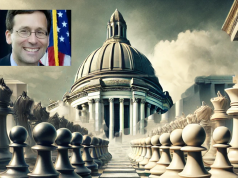Like a SuperCollider with Microsoft at the atomic nucleus of Northwest techdom, and Google well entrenched in its Kirkland lakefront quarters, the next incredible energy force set to trigger a major tech reaction here will be the “likes” of Facebook. The hegemonic social networking organization that wants to emblazon a “Like” button, writ large, on every Web page of the Internet,is seeking to build upon a small core group of engineers by making itself a development home here.
Already, reports claim that the former founder of iLike, the music “favoriting” tracking service, is making a move from MySpace to Facebook and another iLike staffer is rumored to be following suit. Is there a magical connection between iLike and Facebook “Likeability” buttons,besides the semantic one of course? Giuess we’ll just have to press the button and wait and see!
Following hot on the heels of this traiblazing move is none other than the supreme cyber news sleuth of the Valley, tech start-up uber-blogger, Michael Arrington of TechCrunch. Arrington has also decided to relocate to Seattle climes and see how the fresh air agrees with him.
One has to wonder if Calfironia will soon be forced to patch together the world’s largest high tech Garage Sale in order to to stave off financial purgatory? Ditto for the NW! [24×7]
Washington’s Highest Court Approves Internet Filters as Constitutional
The Washington state Supreme Court has affirmed that public libraries in Washington state may use Internet filters to keep users of their computers from looking at pornography and other objectionable sites. The justices ruled Thursday that a rural district that uses filters in its libraries is not violating the state constitution.
Three adults and a non-profit group who use the libraries sued the district complaining that the filters screened out too many websites, including mainstream video sites like YouTube, The plinatiffs were represented by the ACLU of Washington.
In making their decision, three dissenting justices on the state’s highest Court agreed, however a six-vote majority on the court sided with the libraries. The ruling compares the Internet to a library’s book collection. The justices say libraries aren’t obligated to provide access to all Internet sites, just as they can’t stock every book ever written.
[24×7]
Get more info in the Seattle24x7 blog

















